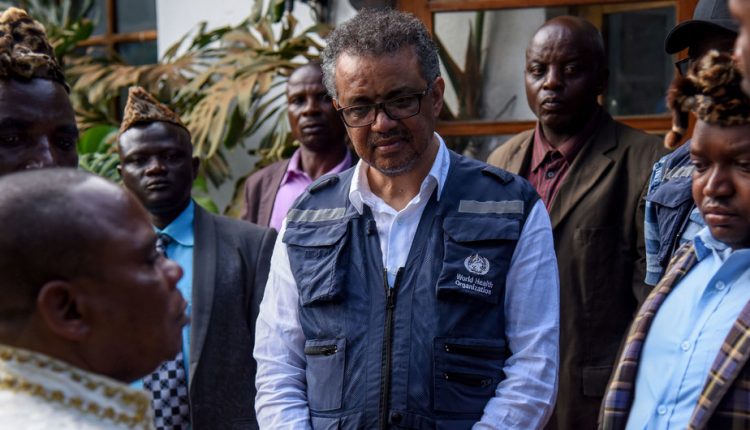Signs DR Congo Ebola outbreak finally ‘on the retreat’ but risk of international spread, ‘still high’
The second worst Ebola outbreak in history is “on the retreat” said the UN’s health agency chief on Wednesday, warning however that there is no room for complacency, with dozens of new cases each week still being recorded in eastern Democratic Republic of the Congo (DRC).
“It’s not over, until it’s over” said Tedros Adhanom Gheybreyesus, speaking to reporters at UN Headquarters in New York, after a meeting co-hosted by WHO and the DRC Government, on the margins of the UN General Assembly, bringing together regional ministers for health, on Ebola preparedness and response.
Latest figures show that more than 2,100 lives have been lost to the haemorrhagic fever since August last year, with 57 new cases recorded in the week up to 19 September; although around 1,000 have recovered from the disease, with more than 3,150 cases overall.
“The outbreak is happening in a complex situation where there is political instability and also insecurity”, said Mr. Tedros. “While fighting Ebola in DRC we have to strengthen our preparedness in neighbouring countries, because the risk of spread is still high”.
He said the meeting had agreed to invest in neighbouring nations not only to end the current outbreak, but also help prevent epidemics in the future. Within DRC, “we will strengthen the health system, because that’s what will give us better outcomes for the future too…that’s the commitment that was shown” during the meeting with ministers and partners, he added.
Responding to criticism reportedly levelled at the WHO vaccination strategy by partner NGO in the DRC, Médecins Sans Frontières (MSF), that it had been too limited and selective in scope so far, Mr. Tedros told reporters that “we learn almost every day, and adjust our response accordingly”, adding that “be it on use of vaccines, on other strategies that we follow, we try and learn every day, and recalibrate our response on a regular basis.”
The Health and Human Services Secretary of the United States, Alex Azar, was first to speak to reporters at the stakeout, and described the outbreak as “the most complex Ebola outbreak in history” and said stopping it, was one of President Donald Trump’s top priorities.
The UN Emergency Ebola Response Coordinator, David Gressly, also briefed the meeting – listen below for an in-depth interview on the latest situation on the ground:
Speaking alongside the DRC’s health minister, the top US health official thanked President, Félix Tshisekedi for attending the meeting, saying the “unique” circumstances of the outbreak meant it could not be stopped “without close and committed cooperation among all stakeholders”.
“Thankfully, today’s meeting underscored that we do have that kind of on-going cooperation…Today’s meeting should send a powerful message that the ministers of health here today, will work together closely and relentlessly until this outbreak is over.”



 for their outstanding support to
for their outstanding support to  . Together, for a safer world.
. Together, for a safer world.